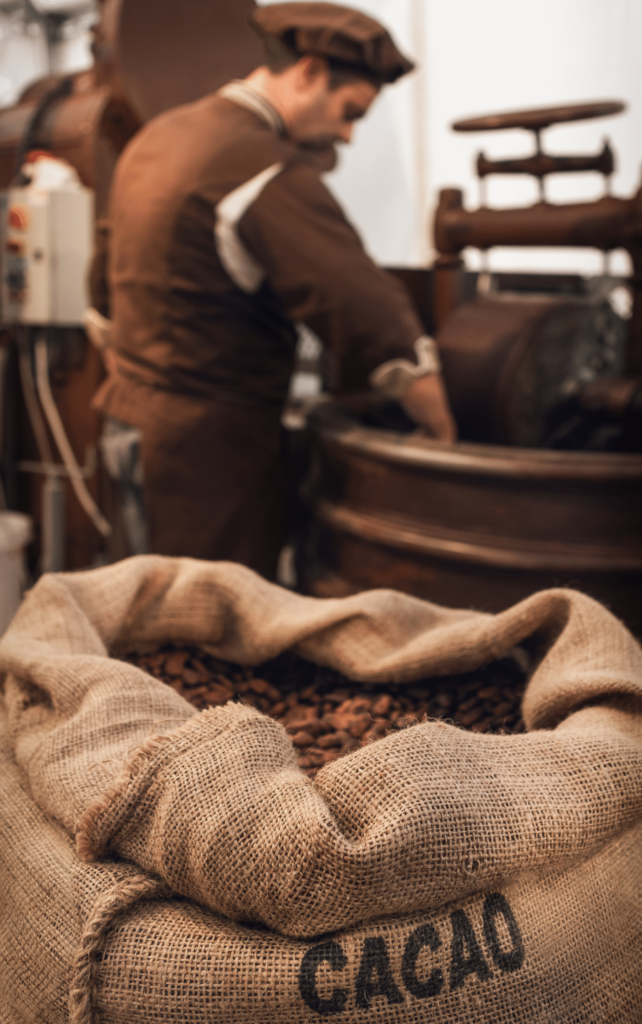February 23, 2026
Why Organizations Are Replacing Traditional Corporate Swag With Custom Chocolate

Chocolate essentially rules the world, at least in terms of the most beloved treat that’s consumed on a global scale. But what makes chocolate so appealing? Why has this specific delicacy crossed cultures, eras (literally centuries), and remains the most popular choice of confection for basically every holiday, and event? What is it about chocolate?
There is A LOT to know about chocolate – from its very interesting history to the way it interacts with our brain chemicals. Books could be written about it! Today, we’ll cherry pick some of the most interesting facts to bring you (almost) everything you never knew about chocolate.
The first time (that we know about) that chocolate was first consumed was actually thousands of years ago. Though it was different from the recipe we know today, the originally bitter elixir first was used in Southern Mexico and Central America around 450 BC, though there is dispute on that with some researchers claiming that chocolate was consumed as far back as 1,200 BC.
Back when Aztecs were creating the stuff, and according to both archeologists and Mayan spiritual elders, the Cacao Spirit was one of the most powerful deities in ancient Mayan cosmology. Drinking the bitter drink brewed from cacao beans was used in ceremonies and in celebrations, to create a cosmic connection with the spirit world.
This fascinating history has influenced our current relationship with chocolate, even if we are unaware of it. The Latin name for the cacao tree, Theobroma cacao, means “food of the gods.”
Before the distribution of sugar across the world, “chocolate” wasn’t like chocolate as we know it today. Instead, the cacao beans were processed and brewed into a liquid and mixed with spices and corn puree that was dark and thick.
Once trade links were established across the Pacific by the 1600s, chocolate soon became a fashionable, upper-class drink throughout Europe. It was of course only available to the elite, and it was thought to have medicinal and aphrodisiac properties to it – it’s said that Casanova was especially fond of the special treat.
The Industrial Revolution throughout the 1800s was quickly changing the world. Mechanization and mass production were altering the very fabric of society, and these principles were being applied to everything, including food creation and distribution. One thing that resulted from this was the chocolate bar! This is thanks to a British man named Joseph Fry who combined cocoa powder and sugar into the shape of a bar.
A man named John Cadbury (sound familiar?) loved the invention and began to work with Fry to tinker with and refine the product. The Cadbury chocolate bar hit the market soon after and the Cadbury empire still rules to this day.
Up to this point, sugar had been added to the mix but milk chocolate was yet to be invented. That came when chocolatiers Henry Nestle and a Swiss man named Daniel Peter started adding milk solids to the recipe and created what we know and love as milk chocolate. This iteration of chocolate took Europe by storm and began the chocolate era that still exists today.
While soldiers were suffering in the trenches, the US government began handing out chocolate bars to soldiers fighting the war. When the fighting was finally over, Americans took their taste for chocolate back home with them. Making demand across the US to go through the roof.
There are a lot of claims about how chocolate interacts and/or improves a person’s health and wellbeing. Some of these claims are exaggerated, while others are well-researched and confirmed. What is known is that dark chocolate, in moderate doses, really can be beneficial for a person. One reason is because dark chocolate contains flavonoids, which act as an antioxidant, protecting the body against toxins that come into our bodies through the foods we eat, the air we breathe, and the products we use.
Chocolate’s delivery of flavonoids/antioxidants support the body’s systems, by:
It’s no surprise that researchers spend a lot of time trying to understand the mysteries of the brain. And studies have revealed that eating dark chocolate with a high cocoa content of 70% or higher can benefit the brain by increasing neuroplasticity. Neuroplasticity is the brain’s ability to form new neural connections, allowing for a person to develop new ideas, memories, habits, associations and thoughts.
One of the most fun stops in chocolate’s evolutionary history is the advent of customized chocolate. Personalized chocolates put you in the driver’s seat. They give you the freedom to custom engrave a personal message directly onto the shape of chocolate of your choice.
Customized chocolates make an amazing gift, since you can create something totally personal and special. Companies are also using customized chocolates with their logos engraved on them, creating a totally new marketing trend.
Today, chocolate manufacturing is a more than $4 billion industry in the United States alone, and is worth an unbelievable $171 billion worldwide. Modern chocolatiers are creating new and exciting flavor combinations from chocolate covered bacon, to spicy chocolate, to lavender and floral-infused chocolate. Not to mention the rising demand for organic, vegan, sugar-free, and gluten-free chocolates.
Like an organism that lives on for millennia, chocolate continues to adapt, grow, and evolve. This is why it continues to dominate the world. It’s also why it will continue to be the number one confection for a long time to come. We can’t wait to see what new surprises chocolate has in store for the future!